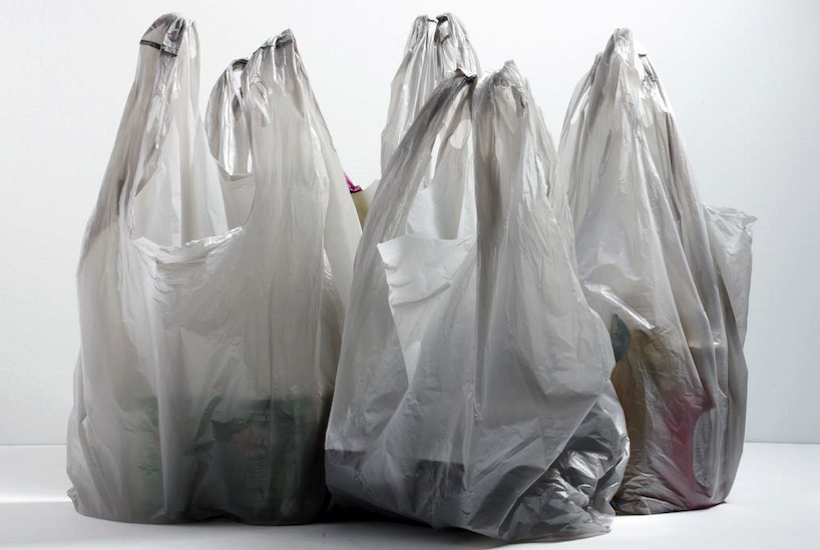It is not often that an identified Public Enemy Number One actually becomes a Superhero.
And it took a pandemic to prove it.
But previously much-maligned plastic is proving a key to survival during COVD-19.
I keep waiting for the protests against plastic to begin, but there is welcomed silence.
Less than two years ago, supermarkets were scrambling to ensure plastic wrap was pushed off dozens of items and of course, the plastic bag ban was seen as the best thing since sliced bread for the survival of the human race and the planet.
How ironic that we have all done a 180-degree turn and the humble single-use plastic bag is again a much-valued item.
Along with lots of other plastic treasures — plastic food wrapping, plastic gloves, all the personal protective equipment needed during the pandemic across the globe with gowns, gloves and masks.
No PPE stuff is being recycled and nor should anyone want it to be.
Supermarket giant Woolworths thought it was on a winner when it recently announced that shoppers across the nation would be able to pick up a fully recyclable paper bag for 20 cents which is five cents more than the reusable plastic bags that were rolled out when single-use bags were banned and withdrawn.
Not only can these paper bags carry six kilograms of groceries but they can be recycled in regular household council wheelie bins. Soon it will also introduce reusable nylon produce bags too.
We used to have one option of a single-use plastic bag. Suddenly there are three options — reusable plastic, recyclable paper and now even a nylon bag.
Go figure. All those resources and energy used to give “conscious consumers” a choice of three ways to get their shopping home as opposed to just one. They all cost time and money in some way though.
A timely reminder for everyone that banning the single-use plastic bag resulted in a huge windfall to all retailers, especially supermarkets.
Back in 2018, when the ban came into effect in Australia, Queensland University of Technology retail expert Dr Gary Mortimer argued that the ban would actually have a minimal impact on the environment.
A decade earlier, the Productivity Commission had already reached similar conclusions.
The supermarkets so-called eco-friendly future was instead boosted by them making around $71 million in gross profit because shoppers were now having to pay for something they used to get for free. Some smart executive would have received a hefty bonus for turning a business cost into a profit centre.
At the end of the day, there were many Australians who were recycling their one–use plastic bags subconsciously by using them for muddy footy boots, kitchen bin bag liners and not just throwing them out or littering them.
But fighting against the might of the greenies who mandate much from the comfort of a café sipping a turmeric soy latte is not easy for those of us with common sense.
Plastic equalled badness. In fact, the idea to ban plastic entirely has resulted in a few brave souls who have pointed out the need for flexible plastic straws to help people in nursing homes and hospital. The demonising of them soon stopped.
But the demonising of balloons and bunting is undoubtedly on the environmental activists’ “to-do” list post-pandemic.
But for now, many previously sustainability-conscious people are now craving everything plastic.
Funny that. Even funnier is that none of them will ever actually admit it!
How many households are now stocked with plastic bottles of hand sanitiser, disposable wipes and takeaway food containers? Demand for disposable gloves and masks remains at a record high.
The bacteria-riddled reusable “keep cup” has been kicked to the curb by cafes and coffee shops.
No one wants to see one in their premises at all. Bring one out and just hear the audible gasp from staff and customers alike.
Even the option of customers wanting to bring in their own containers to stores and restaurants has been knocked on the head meaning everyone is defaulting to the good old disposable options.
Local newspapers that were available at various stands in various locations around Australian suburbs are now home-delivered, tightly wrapped in plastic wrap.
Some people are arguing that single-use plastic bags have been found to be a more hygienic option than reusable ones and plastic bag bans have been reversed in some US states and elsewhere around the world.
We have all been blindly led down the garden path for so long by activist groups intent on demonising plastic. But this pandemic has seen the pendulum swing back hard, demonstrating that when it comes to the crunch, more often than not, common sense prevails.
People are now realising the true value of plastic- something that was initially invented to benefit the human race and providing its benefits in a crisis.
Remember, it is people who litter.
The plastic item doesn’t throw itself out.
And so, back to the bags.
You might want to spare a thought for the poor old multi–billion–dollar company Woolworths.
The retail giant recently announced that it was going to be releasing paper bags, made from 70 per cent recycled paper, after a trial that was “well received by customers”.
It has been more than 40 years since paper bags were used in supermarket stores.
Undoubtedly thinking it is doing the now obligatory “BPA free, carbon-neutral, sustainable environmental thing” good old Woolies has come under fire from some shoppers who are annoyed that its “you beaut” new paper bags are actually stamped Made in China.
Woolworths says it is now working on seeing if it can find a viable solution to get them made in Australia.
It can, but of course for umpteen times more than the cost of manufacturing them in China meaning less profit for them.
What is old is indeed new again.
It may have indeed slipped those customers’ minds that seventy per cent recycled paper still means trees are being cut down and loads of energy used to manufacture them.
One silver lining in this pandemic has been that plastic is not the devil in disguise after all.
Got something to add? Join the discussion and comment below.
Got something to add? Join the discussion and comment below.
Get 10 issues for just $10
Subscribe to The Spectator Australia today for the next 10 magazine issues, plus full online access, for just $10.


























Comments
Don't miss out
Join the conversation with other Spectator Australia readers. Subscribe to leave a comment.
SUBSCRIBEAlready a subscriber? Log in